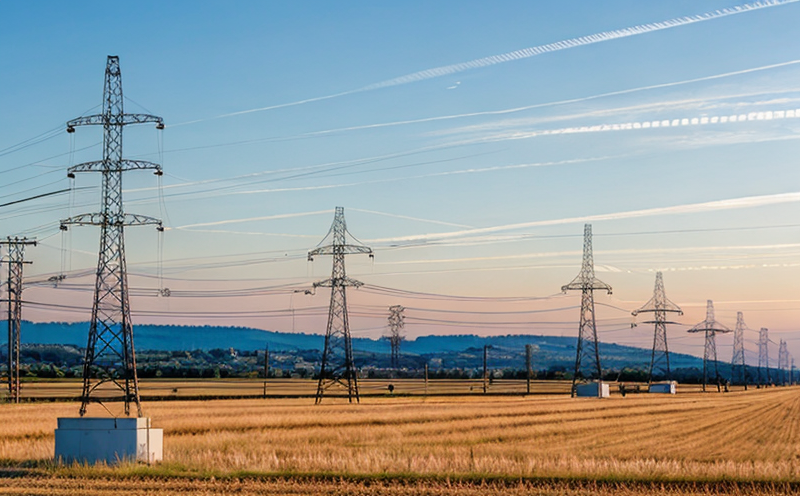IEC 60932 Fault Current Limiter Testing
The IEC 60932 standard provides guidelines for testing fault current limiters (FCLs), which are critical components in power systems designed to protect against excessive currents during faults. These devices play a crucial role in safeguarding electrical networks by limiting the magnitude of fault currents, thereby reducing potential damage and ensuring system stability.
The primary purpose of IEC 60932 testing is to ensure that FCLs meet the performance requirements specified in this international standard. This includes verifying their ability to interrupt or limit fault currents effectively without causing permanent damage to the device itself. The tests also check for compliance with safety regulations and operational reliability under various conditions.
Testing laboratories like Eurolab specialize in providing comprehensive IEC 60932 Fault Current Limiter Testing services, ensuring that FCLs meet stringent quality standards before being deployed into real-world power distribution systems. Our team of experts uses state-of-the-art facilities and equipment to conduct these tests accurately and efficiently.
The testing process typically involves several key steps, including initial inspection, electrical parameter measurement, thermal cycling simulation, short-circuit endurance test, and post-test analysis. Each step is designed to assess different aspects of the FCL's functionality and durability.
For example, during the initial inspection, we carefully examine the physical integrity and appearance of the FCL to ensure there are no visible defects or damages that could affect its performance. Following this, detailed electrical measurements are taken using precision instruments to determine the device’s current limiting capabilities accurately.
The thermal cycling simulation helps us evaluate how well the FCL can withstand repeated cycles between ambient temperature extremes without degrading its performance significantly. This is especially important given the varying environmental conditions it might encounter in actual use.
A short-circuit endurance test simulates real-world fault scenarios where high levels of current flow through the system. By subjecting the FCL to these extreme conditions, we can verify whether it will perform as expected and protect the network from potential catastrophic failures.
After completing all tests, our skilled technicians perform thorough post-test analyses to compile detailed reports highlighting any issues found during testing along with recommendations for improvements if necessary. These reports serve not only as documentation of compliance but also valuable resources for continuous improvement efforts within manufacturers' R&D departments or quality assurance teams.
Scope and Methodology
| Test Parameter | Description |
|---|---|
| Initial Inspection | Careful examination of the FCL's physical condition for defects. |
| Electrical Parameter Measurement | Detailed assessment using precise instruments to evaluate current limiting capability. |
| Thermal Cycling Simulation | Simulation of repeated temperature changes to assess long-term reliability. |
| Short-Circuit Endurance Test | Testing the FCL's ability to handle extreme fault currents safely and effectively. |
| Test Parameter | Description |
|---|---|
| Post-Test Analysis | Analyses performed on the results of all previous tests to compile comprehensive reports. |
| Risk Assessment | Evaluation of potential risks associated with improper FCL performance in power systems. |
| Data Validation | Verification that test data meets the required standards and criteria specified by IEC 60932. |
Eurolab Advantages
At Eurolab, our commitment to excellence in power & utilities testing is reflected in every service we offer. For IEC 60932 Fault Current Limiter Testing specifically:
- We leverage cutting-edge technology and advanced test facilities tailored explicitly for this type of evaluation.
- Our experienced technicians possess deep knowledge about the intricacies of FCLs, ensuring accurate interpretations during testing processes.
- We maintain strict adherence to international standards like IEC 60932 throughout our procedures, guaranteeing reliable results that meet global regulatory requirements.
- A robust quality assurance system ensures consistent high-quality outputs across all projects undertaken by Eurolab.
- We offer flexible service options designed to fit your specific needs and timelines precisely.
- Our client-centric approach means we prioritize clear communication throughout the entire testing process, from initial consultation through final report delivery.
- Educational resources are readily available for clients seeking additional insights into FCL functionality or best practices in their implementation strategies.
By choosing Eurolab as your partner for IEC 60932 Fault Current Limiter Testing, you gain access to world-class expertise and state-of-the-art capabilities that will help ensure the safety and efficiency of your power distribution networks.
Quality and Reliability Assurance
- Data Accuracy: Utilizing high-precision measurement tools ensures accurate data collection during all stages of testing.
- Consistent Results: Reproducible outcomes across multiple tests conducted on similar specimens under controlled conditions.
- Comprehensive Reporting: Detailed documentation covering every aspect tested, including findings and recommendations for improvement where applicable.
- Third-Party Verification: Independent audits confirm that our processes comply with relevant international standards (ISO/IEC).
- User Training: Providing guidance on proper usage and maintenance of FCLs based on the insights gained from thorough testing.





